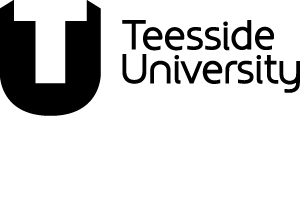

Electrical and Electronic Engineering (Top-up) (Online), BEng Tech (Hons)
- Time investment
- 1 year full-time, 2 years part-time
- Location
- Online
- Cost
- Up to £13,200
- Language
- English
About this degree

Power your skills for a connected world
Ever wondered what keeps Tesla’s electric cars moving or how smart grids from Siemens manage city-wide energy? Electrical and electronic engineers make it happen.
This top-up degree builds on your Level 5 qualification, giving you the tools to tackle complex systems, from industrial drives to advanced power networks.
Through hands-on design challenges, you’ll sharpen both your technical know-how and creative problem-solving skills, preparing you for projects that literally power our modern world.
Get hands-on with technologies shaping industry
Step into real-world engineering scenarios using industry-standard software and tools. You’ll explore electric drives, industrial electronics, and power systems while tackling practical challenges in automation, robotics, and sustainability.
Imagine simulating an energy-efficient motor one day and optimising a factory’s control system the next. This is where theory meets applied innovation, and where your skills become immediately relevant to employers.


Bring your ideas to life with a personal project
Your degree culminates in a tailored project guided by expert tutors. Choose a focus that excites you (whether it’s electric vehicles, renewable energy systems, or smart industrial solutions) and see your concepts come to life.
You’ll develop research, technical, and collaborative skills, finishing with a project that demonstrates your ability to deliver solutions for real-world challenges in electrical and electronic engineering.
Where you’ll be studying

Studying at Teesside University
Teesside University delivers 100% online, career-focused education designed to help you thrive anywhere in the world.
With a Gold rating (Teaching Excellence Framework 2023) and recognised for outstanding student experience, Teesside combines expert teaching with research that drives real-world impact.
Flexible and innovative, they offer online courses that fit around your life, empowering you to upskill, reskill, or take the next step in your career.
Learning outcomes
Drive your knowledge
Explore electric drives, learning how power electronic converters work and fit into AC and DC systems.
Get hands-on with industrial electronics
Study power devices, converters, and switch-mode power supplies using practical tools and real-world examples.
Make sense of power systems
Investigate how power generation, transmission, and distribution networks are designed, operated, and protected.
Lead your own project
Build research, technical writing, and presentation skills through an independent project guided by a supervisor.
Engineer the future
Explore automation, AI, IoT, and sustainable manufacturing, discovering how Industry 4.0 shapes modern industrial environments.
Additional information
- UKVI approved IELTS (Academic)
- Non-UKVI approved IELTS
- Trinity Integrated Skills in English (ISE) – B2 and C1 tests
- Pearson’s PTE Academic
- PTE Academic UKVI
- LanguageCert International ESOL SELT
- TOEFL iBT
- WAEC grades A1 to C6
- NECO grades A1 to C5
- SPM grades A to C
- Kenya High School Certificate Grade C+ or Higher
- Uganda Advanced Certificate of Education grades 1 to 6
- Uganda Certificate of Education grades 1 to 6
You’ll also develop transferable skills in problem-solving, project management, and technical communication, equipping you for roles in consultancy, research, or further study.
Whether you aim to specialise in a particular area or broaden your expertise across engineering disciplines, this course provides the foundation to advance your career and make a meaningful impact.
Find out more about this degree
Modules
Related degrees
Explore related subject areas
Browse similar fields of study that align with your interests. These related subjects can expand your options or complement your chosen degree path.
Want to know more?
Please fill in your details, and we’ll share your information with Teesside University, who will be in touch.



